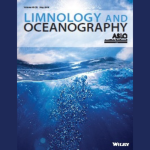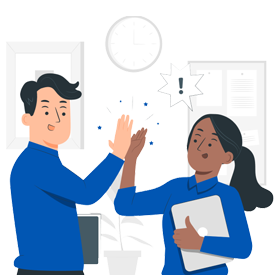Publications
Publications
Peer-reviewed research papers, practitioner articles, and program evaluations exploring topics such as climate literacy, community resilience, geoscience education, and the impact of informal learning experiences.

Dryák-Vallies, M. C., Strand, S. M., Payne, M. R., & Schlindwein, A. (2025). Polar Early Career World Summit Synthesis Report. Association of Polar Early Career Scientists (APECS) International Directorate and Polar Science Early Career Community Office (PSECCO). https://doi.org/10.5281/zenodo.16994869
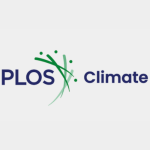
Boyd, K.J., Gold, A.U., Chandler, P.D., Crim, H.A. (2025): Climate change education in the new landscape of climate literacy. PLOS Clim 4(5): e0000623. https://doi.org/10.1371/journal.pclm.0000623
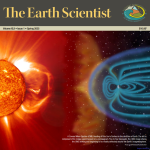
Vieyra, R., López Tavares, D., Vallejo, A., Rouinfar, A., Gold, A., & Perkins, K. (2025). Elevating student agency to explore big Earth and space science ideas with PhET Interactive Simulations. The Earth Scientist, 42(1), 22-28.
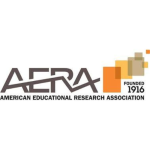
Gold, A.U., Ward, E., Marsh, C., Moon, T., Schoeneman, S., Khan, A. (2025): Emotional Value Coding as an Innovative Approach to Assess Sense of Place in Classroom Instruction. American Education Research Association Conference.
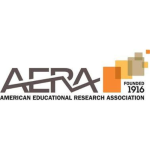
Littrell, M., Gold, A.U., Ward, E., Quarderer, N., Sullivan, S., Rattling Leaf, J., Balch, J. (2025): Assessing Needs and Sense of Belonging in an Emerging Environmental Data Science Community. American Education Research Association Conference.
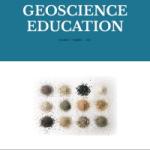
Littrell, M. K., Boyd, K. J., Schloesser, K., Christensen, A., Gold, A. U., & Alam, I. (2025). Place and community engagement in a youth natural hazards and community resilience education program. Journal of Geoscience Education, 1–16. https://doi.org/10.1080/10899995.2025.2489709
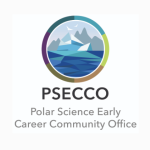
Goliber, S., Coenen, J., Fair, H., Szesciorka, A. R., Schulz, K., Harning, D. J., Fernando, B., Ksenofontov, S. S., Pacini, A., Rivera, M. J., Calmer, R., Conroy, J. A., Doting, E. L., Bergelin, M., Dunmire, D., Sánchez Montes, M. L., Ravelo, A. M., Sledd, A., Stinchcomb, T. R., . . . Dryák-Vallies, M. C. (2024). Postdoc Perspectives on Leadership and Matters of Equity and Inclusion in Polar Science. Perspectives of Earth and Space Scientists, 5(1), e2024CN000252. https://doi.org/10.1029/2024cn000252
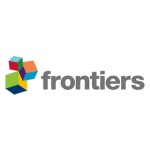
Schloesser, K., Davis, R., Ruffin, T., Gold, A. U., Christensen, A., Littrell, M. K., & Boyd, K. J. (2024). Centering and uplifting youth voice in planning for a more resilient climate future in rural Colorado: A case study of a student resilience team asking for change. Frontiers in Climate, 6(1), Article 1408872. https://doi.org/10.3389/fclim.2024.1408872
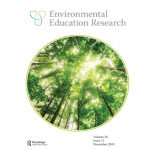
Boyd, K. J., Busch, K. C., Gold, A. U., Ward, E. G., Niepold, F., Poppleton, K., … Morrison, D. L. (2024). Using social network analysis to assess connections within climate and energy education organizations: A case study conducted by the Climate Literacy and Energy Awareness Network (CLEAN). Environmental Education Research, 1–24. https://doi.org/10.1080/13504622.2024.2408424
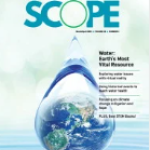
Semmens, K., Sickler, J., Maxfield, K., Goldner, M., Curry, D., Peddicord, H., … Carr, R. H. (2024). Building Insights Through Observation: Integrating Art and Science to Support Sensemaking. Science Scope, 48(2), 30–38. https://doi.org/10.1080/08872376.2025.2463906
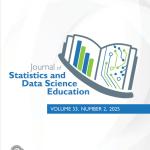
Quarderer, N. A., Wasser, L., Gold, A. U., Montaño, P., Herwehe, L., Halama, K., ... & Balch, J. (2024). Fostering the Development of Earth Data Science Skills in a Diverse Community of Online Learners: A Case Study of the Earth Data Science Corps. Journal of Statistics and Data Science Education, 33(1), 3-15. https://doi.org/10.1080/26939169.2024.2362886
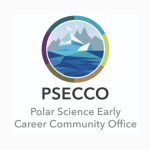
Dryák-Vallies, M. C., & Pineda Velez, K. (2024). Polar Postdoc Leadership Workshop Post-Event Survey Report and Results. Polar Postdoc Leadership Workshop, Boulder, Colorado, United States of America. Zenodo. https://doi.org/10.5281/zenodo.10884427
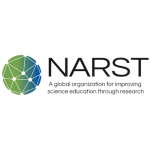
Littrell, M.K., Okochi, C., Boyd, K., Gold, A.U., Pennycook, D., McCormick, M., Mrakuzic, A. (2024): Engaging Library Visitors in Dialogues around Informal Learning about Water and Community Connections. National Association for Research in Science Education (NARST) 2024 Denver Conference. Extended conference paper. peer-reviewed
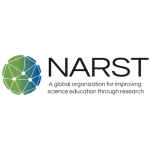
Okochi, C., Littrell, M.K., Boyd, K.J., Gold, A.U. (2024): Water meaning maps: Diving deeper into rural library visitors’ connections with water in the Southwest. National Association for Research in Science Education (NARST) 2024 Denver Conference. Extended conference paper. peer-reviewed.
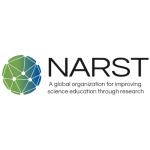
Boyd, K.J., Littrell, M., Okochi, C., Stein, J., Valdez, S., Gold, A.U., Rongstad Strong, B., Schaecher, A., Grybko, T. (2024): Engaging Communities and Adapting Informal Learning Research and Evaluation Methods to Rural Library Settings. National Association for Research in Science Education (NARST) 2024 Denver Conference. Extended conference paper, peer-reviewed.
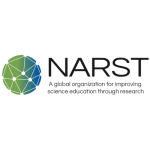
Gold, A.U., Maryboy, N., Begay, D., Valdez, S., Stein, J., Littrell, M., Boyd, K., Okochi, C., Rongstad Strong, B. (2024): Indigenous Logic Model Development: Fostering Collaborative Engagement and Cultural Relevance. National Association for Research in Science Education (NARST) 2024 Denver Conference. Extended conference paper, peer-reviewed.
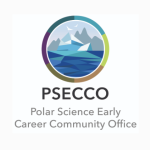
Doting, E. L., Dunmire, D., Dryák-Vallies, M., Ravelo, A., Szesciorka, A., Sledd, A., Pacini, A., Fernando, B., Harning, D., Dunmire, D., Tibbett, E., Doting, E., Fair, H., Conroy, J., Coenen, J., Schulz, K., Bergelin, M., Sánchez Montes, M., Rivera, M. J., … Stinchcomb, T. (2024). Report on the 2023 Polar Postdoc Leadership Workshop hosted by the Polar Science Early Career Community Office. Cooperative Institute for Research in Environmental Sciences Center for Engagement, Education, and Evaluation. https://doi.org/10.5281/zenodo.10611794
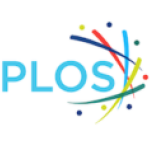
Okochi, C, Gold, A.U., Christensen, A., Batchelor, R. (2023): Early access to science research opportunities: Growth within a geoscience summer research program for community college students. PLOS ONE. https://doi.org/10.1371/journal.pone.0293674.
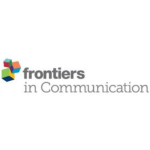
*Marsh, C., Gold, A, Rongstad, B. (2023): Inclusive Science Communication: Strategies for Utilizing an Asset-Based Community Engagement Framework to Elevate Community Voices, Inspire Conversation, and Honor Multiple Ways of Knowing. Frontiers in Communication, 8, https://doi.org/10.3389/fcomm.2023.1214105 (*former undergraduate student)
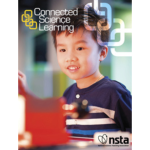
Christensen, A., Welton-Mitchell, C., Gold, A., James, L., & Zeitz, L. (2023) Beyond Doom and Gloom: Teaching Climate Change to Foster Empowerment. Connected Science Learning, 5(3). https://doi.org/10.1080/24758779.2023.12318633

Rongstad Strong, B., A.U. Gold, C. Ratcliffe Adams, V. Tomas, and A. Watkins (2023) Place-based education and community knowledge connect youth to water topics. Connected Science Learning, 5 (4). https://doi.org/10.1080/24758779.2023.12318616
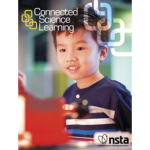
Schaecher, A., Rongstad Strong, B., Gold, A. (2023) We are Water Patch Promotes Action for Watershed Stewardship. Connected Science Learning. July – August 2023. 5(4). https://doi.org/10.1080/24758779.2023.12318615
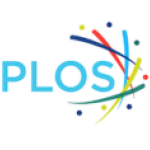
Gold AU, Geraghty Ward EM, Marsh CL, Moon TA, Schoeneman SW, Khan AL, et al. (2023) Measuring novice-expert sense of place for a far-away place: Implications for geoscience instruction. PLoS ONE 18(10): e0293003.. https://doi.org/10.1371/journal.pone.0293003
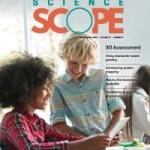
Griffith, J., Braaten, M., Dubick, A., & Gold, A. (2023). From Windy Day Stories to Wind Farms of the Future: Leveraging student resources to make sense of science phenomena with Data Puzzles. NSTA Science Scope. https://doi.org/10.1080/08872376.2024.2314669
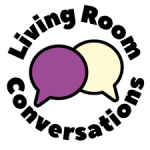
Rongstad Strong, B., Schaecher, A., Gold, A., Knight, E. (2023): We are Water: Connecting Communities Through Stories and Conversations. Living Room Conversation blog Blog post as part of Earth Day and to advertise the new Living Room Conversations Guide.
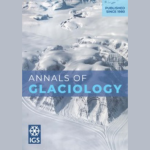
Karplus, M.S., Young, T.J., Anandakrishnan, S., Bassis, J.N., Case, E.H., Crawford, AJ., Gold, A.U., Henry,L.R., Kingslake, J., Lehrmann, A.A., Montalvo, P.A., Pettit, E.C., Scambos, T.A., Sheffield, E.M., Smith, E.C., Turrin ,M., Wellner, J.S. (2022): Strategies to build a positive and inclusive Antarctic field work environment. Annals of Glaciology, Volume 63 (87-89) , pp. 125 – 131, doi: https://doi.org/10.1017/aog.2023.32.
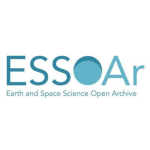
Fortner, S., Gold, A.U., Batchelor, R.L. et al. (2022). Geoscience Education Perspectives on Integrated, Coordinated, Open, Networked (ICON) Science. Earth and Space Science Open Archive. https://doi.org/10.1002/essoar.10510740.1
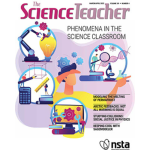
Griffith, J., & Kozick-Kingston, M. (2022). Arctic Feedbacks: Not All Warming is Equal. The Science Teacher, 89(4), 38–45. https://doi.org/10.1080/00368555.2022.12293683
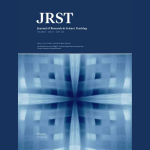
Littrell, M. K., Gold, A. U., Kosley, K.L.K., May, T.A., Leckey, E., & Okochi C. (2022). Transformative experience in an informal science learning program about climate change. Journal of Research in Science Teaching, 1-25. https://doi.org/10.1002/tea.21750
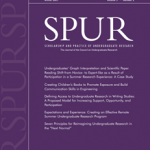
Gold, A. U., Atkins, R., & McNeal, K. S. (2021). Undergraduates graph interpretation and scientific paper reading shift from novice- to expert-like as a result of participation in a summer research experience: A case study. Scholarship and Practice of Undergraduate Research, 5(2), 7–19. https://doi.org/10.18833/spur/5/2/2.
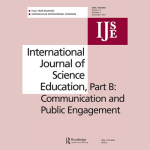
Boyd, K. J., Okochi, C., Littrell, M. K., Batchelor, R. L., Gold, A. U., & Leckey, E. (2021). Career implications for college student mentors through their contribution to a climate film outreach program for adolescents. International Journal of Science Education, Part B, 11(4), 308–323. https://doi.org/10.1080/21548455.2021.1996656.
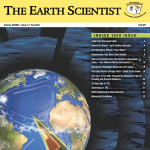
Schloesser, K., Kurz, J., Gold, A.U. (2021): Too much or too little: Empowering students to plan for resiliency to flooding and drought. The Earth Scientist, Vol. XXXVIII, 3, 24-18.
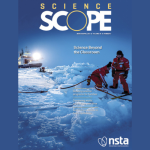
Griffith, J., Grandell, S., Harden, L., & Gold, A. (2021). Teaching Nature of Science Concepts in the Context of Past (Fram) and Present (MOSAiC) Artic Expeditions. Science Scope, 44(4), 20–28. https://doi.org/10.1080/08872376.2021.12291396
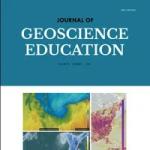
Boyd, K. J., Gold, A. U., & Littrell, M. K. (2021). Teaching practices around natural hazards and community resilience in Colorado. Journal of Geoscience Education, 1-14. https://doi.org/10.1080/10899995.2021.1964319.
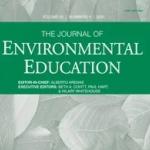
Leckey, E. H., Littrell, M. K., Okochi, C., González-Bascó, I., Gold, A., & Rosales-Collins, S. (2021). Exploring local environmental change through filmmaking: The Lentes en Cambio Climático program. The Journal of Environmental Education, 52(4), 207-222. https://doi.org/10.1080/00958964.2021.1949570
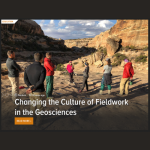
Hill, A. F., M. Jacquemart, A. U. Gold, and K. Tiampo (2021), Changing the culture of fieldwork in the geosciences, Eos, 102, https://doi.org/10.1029/2021EO158013.
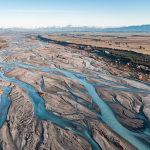
Batchelor, R. L., H. Ali, K. G. Gardner-Vandy, A. U. Gold, J. A. MacKinnon, and P. M. Asher (2021), Reimagining STEM workforce development as a braided river, Eos, 102, https://doi.org/10.1029/2021EO157277. Published on 19 April 2021.
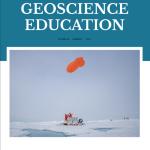
Gold, A. U., Pfirman, S., & Scowcroft, G. A. (2021). The imperative for polar education. Journal of Geoscience Education, 69(2), 97-99, https://doi.org/10.1080/10899995.2021.1903242
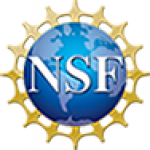
Sloan, V., & Haacker, R. (Eds.). (2020). GEO REU Handbook: A Guide for Running Inclusive and Engaging Geoscience Research Internship Programs (1st ed.). https://doi.org/10.5065/ycba-qw42
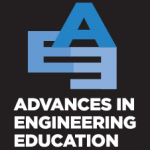
Batchelor, R.L., Christensen A.H., Gold, A.U., Okochi, C. (2020): A Two-week Virtual Research Experience Program for Community College Students in the Geosciences. Advances in Engineering Education. FALL 2020 VOLUME 8 NUMBER 4. DOI: 10.18260/3-1-1153-98230
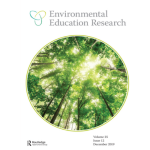
Tayne, K., Littrell, M. K., Okochi, C., Gold, A. U., & Leckey, E. (2020). Framing action in a youth climate change filmmaking program: hope, agency, and action across scales. Environmental Education Research, 27(5), 706–726. https://doi.org/10.1080/13504622.2020.1821870
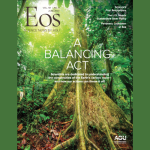
Sloan, V., R. Haacker, R. Batchelor, and C. Garza (2020), How COVID-19 is affecting undergraduate research experiences, Eos, 101, Published on 18 June 2020.https://doi.org/10.1029/2020EO145667.
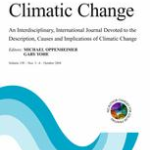
Morrison, A.L., Rozak, S., Gold, A.U. et al. Quantifying student engagement in learning about climate change using galvanic hand sensors in a controlled educational setting. Climatic Change 159, 17–36 (2020). https://doi.org/10.1007/s10584-019-02576-6
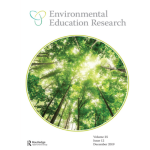
Littrell, M. K., Tayne, K., Okochi, C., Leckey, E., Gold, A. U., & Lynds, S. (2020). Student perspectives on climate change through place-based filmmaking. Environmental Education Research, 26 (4), 594-610. https://doi.org/10.1080/13504622.2020.1736516
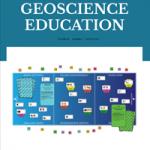
Katya A. Schloesser & Anne U. Gold (2020) Bringing polar topics into the classroom: Teacher knowledge, practices, and needs. Journal of Geoscience Education. https://doi.org/10.1080/10899995.2020.1729076
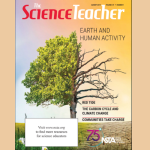
TAYLOR, J., THOMAS, L., PENUEL, W., & SULLIVAN, S. (2019). FOOD FIGHT!: Students design ways to take a bite out of climate change at school. The Science Teacher, 87(1), 42–49. https://www.jstor.org/stable/26899187
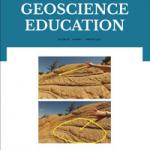
Littrell, M.K., Okochi, C., Gold, A.U., Leckey, E., Tayne, K., Lynds, S., Williams, V., & Wise, S. (2019). Exploring students’ engagement with place-based environmental challenges through filmmaking: a case study from the Lens on Climate Change program. Journal of Geoscience Education, 68(1), 80-93. doi: 10.1080/10899995.2019.1633510.
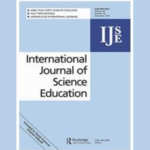
Gold, A.U., Pendergast. P., Ormand, C., Budd, D., Mueller, K. (2018): Improving Spatial Thinking Skills among Undergraduate Geology Students through short online Training Exercises. International Journal for Science Education. https://doi.org/10.1080/09500693.2018.1525621
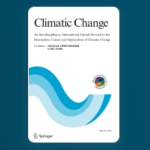
Libarkin, J.C, Gold, A.U., Harris, S.E., McNeal, K.S, Bowles, R.P. (2018): A new, valid measure of climate change understanding: Associations with risk perception. Climatic Change, 150(3), pages 403-416. https://doi.org/10.1007/s10584-018-2279-y
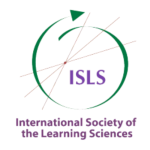
Tayne, K., Littrell-Baez, M.K., Leckey, E., Gold, A.U. (2018): Engaging with Climate Change as a Socioscientific Issue in an Informal Science Learning Environment. In: Kay, J. & Luckin, R. (eds.) Rethinking Learning in the Digital Age. Making the Learning Sciences Count, International Society of Learning Sciences Conference Proceedings, v. 1, p. 1715-1716. https://repository.isls.org//handle/1/820
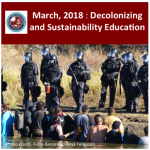
Gold, A.U., Leckey, E., Littrell-Baez, M., Smith, L., Lynds, S. (2018): Student-Produced Short Films About Impacts of Climate Change on Local Communities: An Effective Approach That Combines Art and Place-Based Learning. Opportunities and challenges of program implementation with secondary school students. Journal of Sustainability Education (ISSN: 2151-7452)
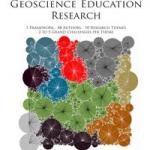
Cervato, C., Charlevoix, D., Gold, A., Kandel, H. (2018): Research on Students' Conceptual Understanding of Environmental, Oceanic, Atmospheric, and Climate Science Content. In: St. John, K. (ed.): A Community Framework for Geoscience Education Research. Framework of the Grand Challenges in Geoscience Education Research. NAGT. https://doi.org/10.25885/ger_framework/15
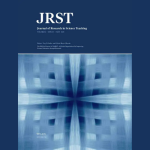
Aksit, O., McNeal, K.S., Libarkin, J.L., Gold, A.U., Harris, S. (2017): The influence of instruction, prior knowledge, and values on climate change risk perception among undergraduates. Journal of Research in Science Teaching, 55 n4 p550-572, https://onlinelibrary.wiley.com/doi/10.1002/tea.21430
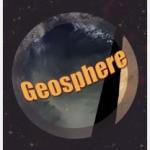
Anne U. Gold, Philip M. Pendergast, Carol J. Ormand, David A. Budd, Jennifer A. Stempien, Karl J. Mueller, Katherine A. Kravitz (2017); Spatial skills in undergraduate students—Influence of gender, motivation, academic training, and childhood play. Geosphere; 14 (2): 668–683,https://doi.org/10.1130/GES01494.1
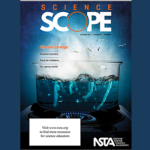
Oonk, D., Leckey, E., Gold, A. U., Margo-Schneider, J., Littrell-Baez, M., Smith, L., & Lynds, S. (2017). Integrating Technology: Lens on Climate Change: Using Place-Based Learning to Explore Climate Change Effects. Science Scope, 41(2), 86–95. https://doi.org/10.2505/4/ss17_041_02_86
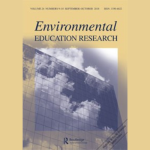
Harris, S., Gold, A.U. (2017): Learning molecular behaviour may improve student explanatory models of the greenhouse effect - Environmental Education Research. 24 (5), 754-771, https://doi.org/10.1080/13504622.2017.1280448
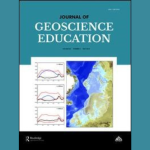
Gold, A.U., Kirk, K.B., Morrison, D., Lynds, S., Sullivan, S.B., Grachev, A., Persson, O. (2015): Arctic Climate Connections Curriculum - A Model for Bringing Authentic Data into the Classroom. Journal of Geoscience Education, Vol. 63, pp. 185-197, https://doi.org/10.5408/14-030.1.
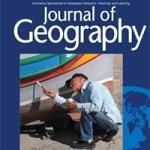
Gold, A.U., Oonk, D., Smith, L., Boykoff, M., Osnes, B., Sullivan, S.B. (2015): Lens on Climate Change: Making Climate Meaningful through Student-Produced Videos. Journal of Geography, Vol. 114, p. 235-246, https://doi.org/10.1080/00221341.2015.1013974.
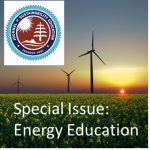
Gold, A.U., Ledley, T.S., Sullivan, S.B., Kirk, K.B., Grogan, M. (2015): Supporting Energy Education Online: Climate Literacy and Energy Awareness Network (CLEAN). Journal of Sustainability Education.
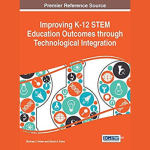
Smith, L., Rooney-Varga, J., Gold, A.U., Oonk, D., Morrison, D. (2014): Engaging Secondary Students in Regionally relevant Science Topics Through Videography - Lens on Climate Change. In: Media Literacy as a Pathway to Bridge the Digital and STEM Divides: Interest Driven Media Projects for Teachers in the Trenches. in Improving K-12 STEM Education Outcomes through Technological Integration, edited by Dr. Michael Urban, Dr. David Falvo, IGI Global, ISSN: 2329-5929. Bibcode 2016EGUGA..18.3576G
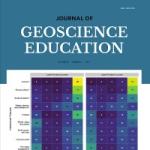
Kirk, K., Gold, A.U., Ledley, T.S., Sullivan, S.B., Manduca, C.A., Mogk, D.W., Wiese, K. (2014): Undergraduate Climate Education: Motivations, Strategies, Successes, and Support. Journal of Geoscience Education, Vol. 62, No. 4, pp. 538-549, https://doi.org/10.5408/13-054.
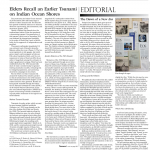
Ledley, T.S., Gold, A.U., Niepold, F. (2014): Enabling Climate and Energy Literacy – A Shared Effort. EOS, Transactions American Geophysical Union, Vol. 95, No. 36, pp. 325-326, https://doi.org/10.1002/2014EO360002.
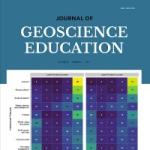
Buhr, S.M., Ledley T.S., Lynds, S.E., Gold, & A.U. (2014). Navigating Climate Science in the Classroom: Teacher Preparation, Practices, Perception and Professional Development. NRC Board on Science Education 'Climate Change Education in Elementary School through the First Two Years of College'. Pp. 1-13. https://doi.org/10.5408/12-304.1
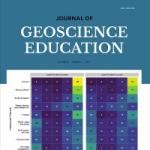
Ledley, T. S., Gold, A. U., Niepold, F., & McCaffrey, M. (2014). Moving Toward Collective Impact in Climate Change Literacy: The Climate Literacy and Energy Awareness Network (CLEAN). Journal of Geoscience Education, 62(3), 307–318. https://doi.org/10.5408/13-057.1
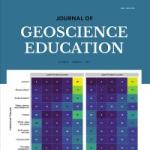
Ellins, K. K., Ledley, T. S., Haddad, N., McNeal, K., Gold, A., Lynds, S., & Libarkin, J. (2014). EarthLabs: Supporting Teacher Professional Development to Facilitate Effective Teaching of Climate Science. Journal of Geoscience Education, 62(3), 330–342. https://doi.org/10.5408/13-059.1
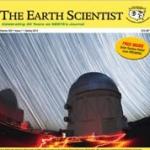
Kellagher, E., D. Noone, L.K. Smith, A. Kaushik and A. Bailey (2014): Inspiring future scientists through synergy between K-12 classroom learning and water cycle research. The Earth Scientist XXX (1):12-15.
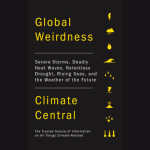
Gold, A.U. (2013). Book Review: Global Weirdness. National Science Education Center (2013). Book Review: Global Weirdness. National Science Education Center.
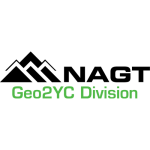
Buhr, S.M. and D. Morrison (2013). CLEAN and ICEE: Two new resources for teaching climate science. Foundations: Newsletter of the Geo2YC NAGT Division. 2:12-14.
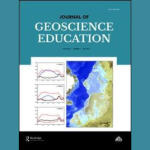
Gold, A.U., Ledley, T.S., Buhr, S.M., Fox, S., McCaffrey, M., Niepold, F., Manduca, C. & Lynds, S. (2012). Peer-review of digital educational resources—A rigorous review process developed by the Climate Literacy and Energy Awareness Network (CLEAN). Journal of Geoscience Education. 60: 295-308, https://doi.org/10.5408/12-324.1.
Huntoon, J. E., R. Buchanan, S.M. Buhr, S. Kirst, S. Newton, and W. Van Norden (2012). Hidden threats to science education, Eos Trans. AGU, 93(17), 170. http://doi.org/10.1029/2012EO170002
Smith, L.K., M. Barber, L. Duguay and L. Whitley (2012): Using the Ocean Literacy Principles to connect inland audiences to the global oceans. Currents. 1:1-7.
Lynds, S. and K. Merryman (2012). Geophysical Research at Storm Peak (GRASP). External Evaluation Report.
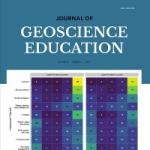
Ledley, T. S., Taber, M. R., Lynds, S., Domenico, B., & Dahlman, L. (2012). A Model for Enabling an Effective Outcome-Oriented Communication Between the Scientific and Educational Communities. Journal of Geoscience Education, 60(3), 257–267. https://doi.org/10.5408/11-234.1
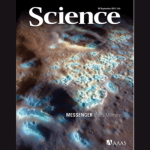
Ledley, T.S., L. Dahlman, C. McAuliffe, M. Haddad, M.R. Taber, B. Domenico, S. Lynds and M. Grogan. (2011). Making earth science data accessible and usable in education. Science 333: 1838-1839. DOI: 10.1126/science.1199348
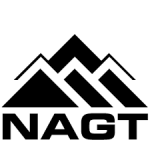
Buhr, S.M., J. Wright. (2011) National Association of Geoscience Teachers Position statement: High School Earth Science Teaching. NAGT. https://doi.org/10.17226/13165
Laursen, S. L., & Smith, L. K. (2011). Helping Scientists Become Effective Partners in Education and Outreach. Eos, Transactions American Geophysical Union, 90(1), 3. https://doi.org/10.1029/2009EO010003
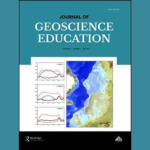
Laursen, S. L., & Brickley, A. (2011). Focusing the Camera Lens on the Nature of Science: Evidence for the Effectiveness of Documentary Film as a Broader Impacts Strategy. Journal of Geoscience Education, 59(3), 126–138. https://doi.org/10.5408/1.3604825
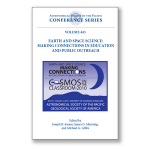
Laursen, S. L. and Brickley, A. L. (2011). "A scientist has many things to do": EPO strategies that focus on the processes of science. In: J. B. Jensen, J. G. Manning, & M. Gibbs (eds.), Earth and Space Science: Making Connections in Education and Public Outreach, ASP Conference Series vol. 443, 116-124.
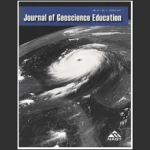
Wise, S. B. (2010). Climate change in the classroom: Patterns, motivations, and barriers to instruction among Colorado science teachers. Journal of Geoscience Education, 58(5), 297-309. https://doi.org/10.5408/1.3559695
Muller-Karger, Frank & Eakin, C. Mark & Guild, Liane & Nemani, Ramakrishna & Hu, Chaoyong & Lynds, Susan & Li, Jianke & Vega-Rodriguez, Maria. (2010). A Decision Support System for Ecosystem-Based Management of Tropical Coral Reef Environments.
McDonnell, G. Banta, B. Chen, S. Cook, L. Duguay, N. Mesner, G. Sharp, L. Smith, W. Stair and A. Sponberg (2009): American Society for Limnology and Oceanography Bulletin. 18(3):62-69. doi/pdf/10.1002/lob.200918361
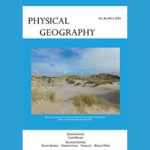
McCaffrey, M. S., & Buhr, S. M. (2008). Clarifying climate confusion: Addressing systemic holes, cognitive gaps, and misconceptions through climate literacy. Physical Geography, 29(6), 512-528. https://doi.org/10.2747/0272-3646.29.6.512
